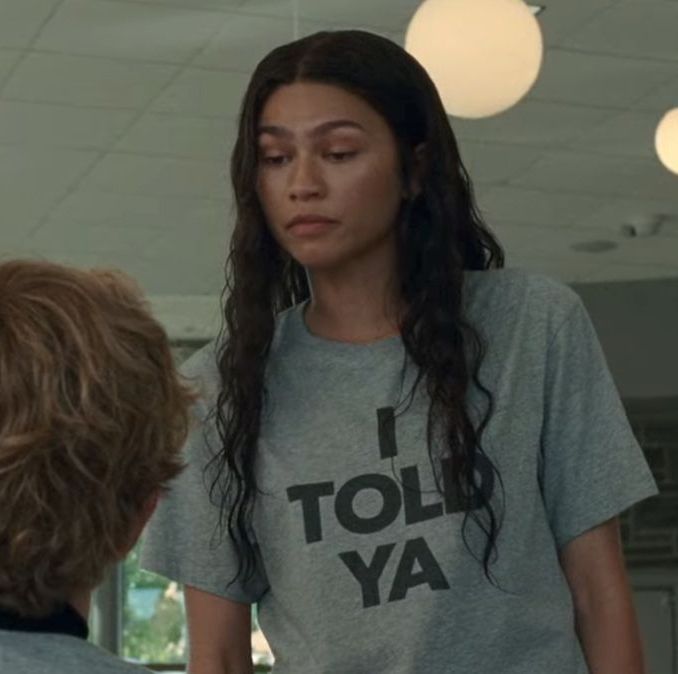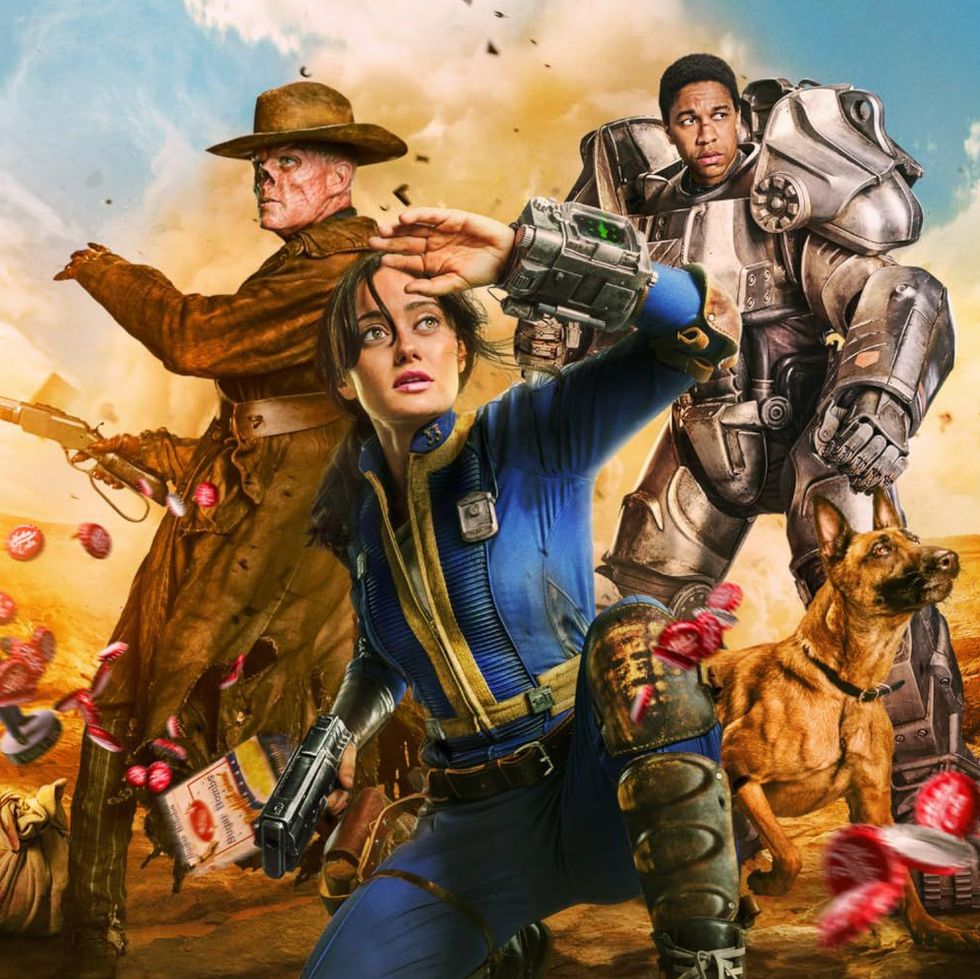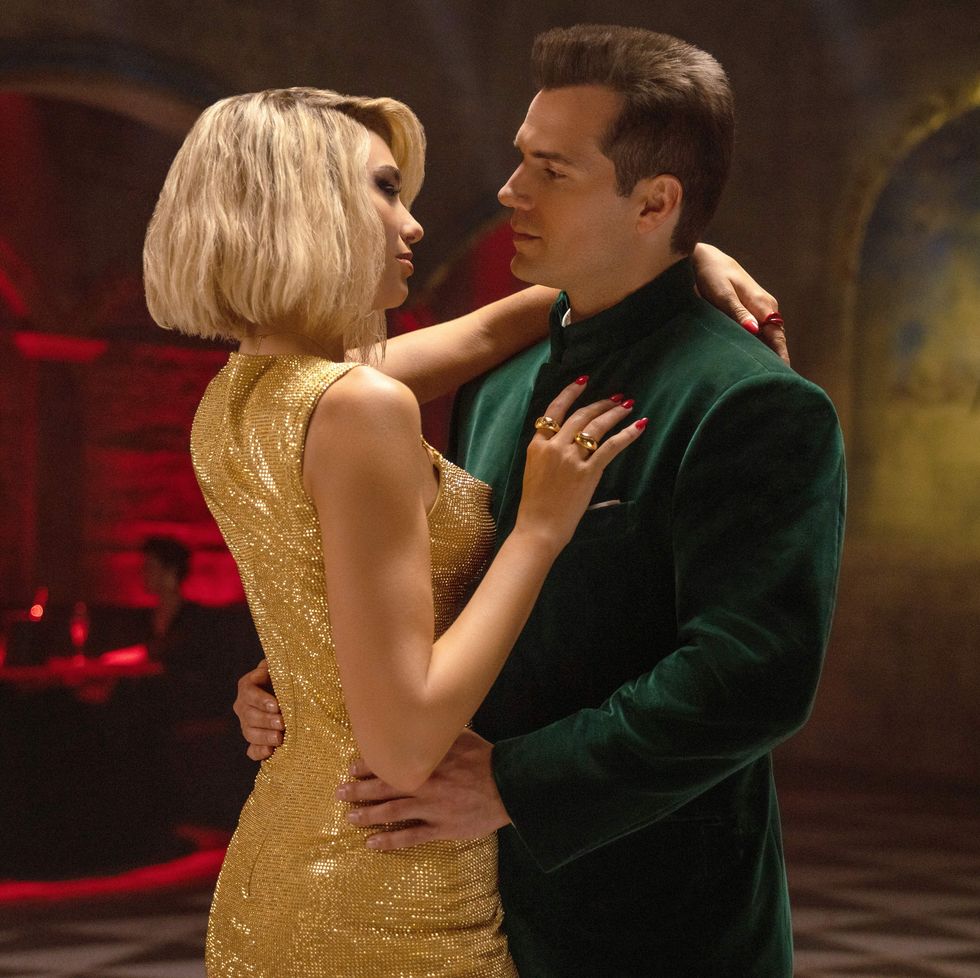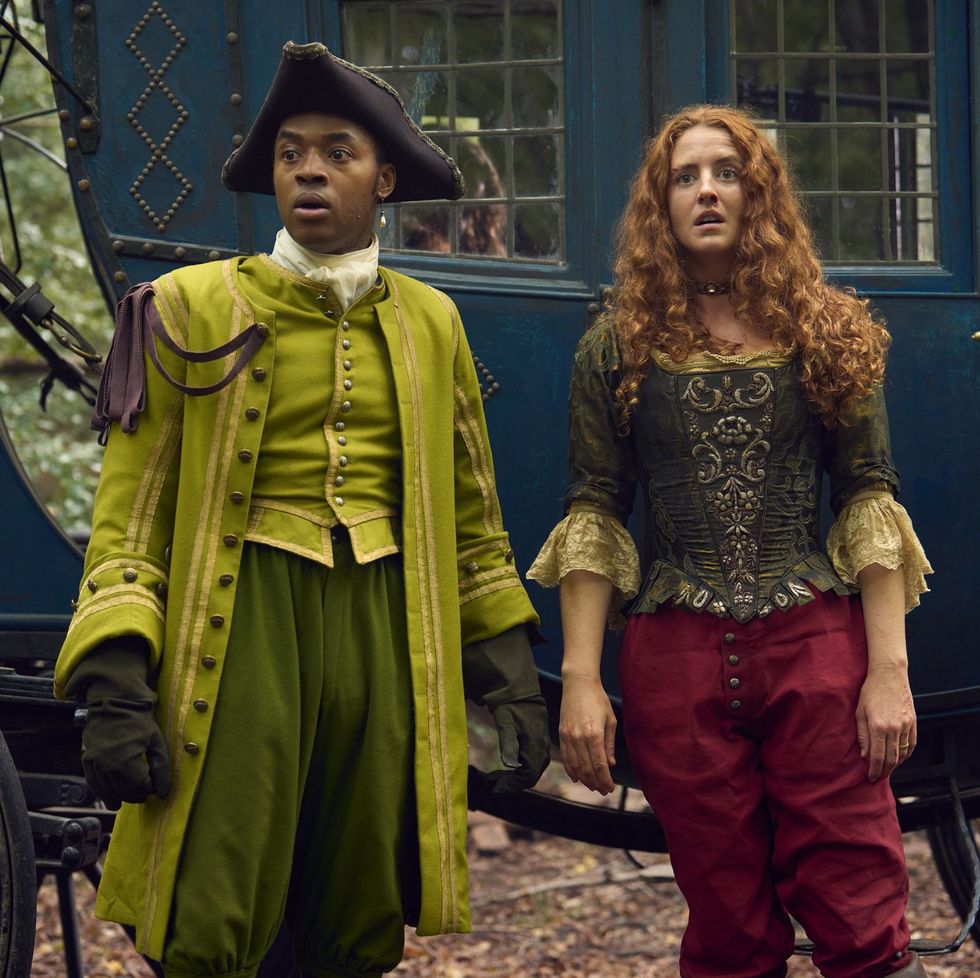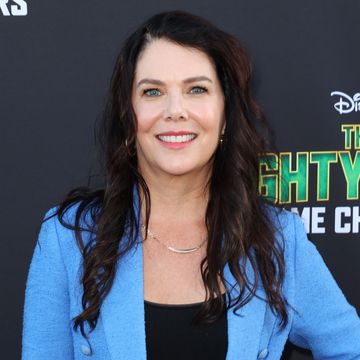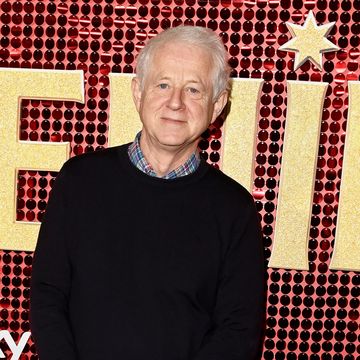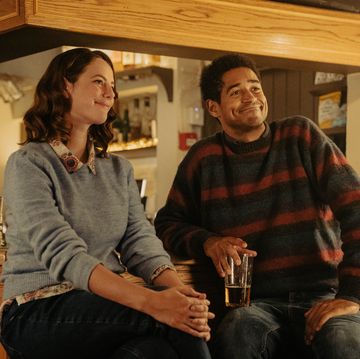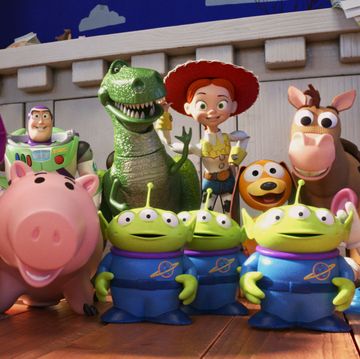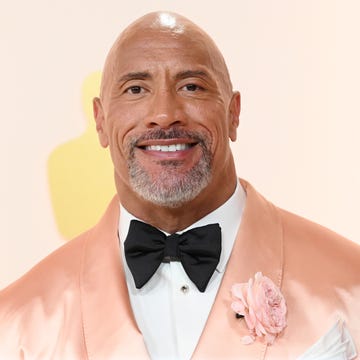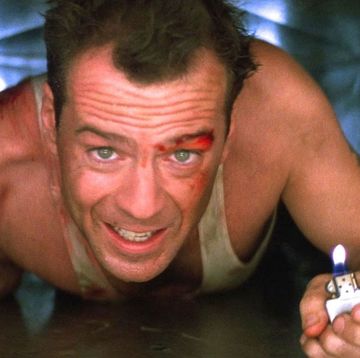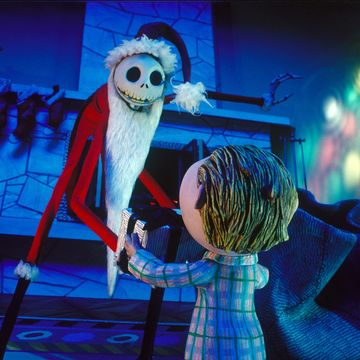It's that time of year again when you're likely thinking of settling down for a traditional rewatch of It's a Wonderful Life. (It's streaming via Channel 4 online this year).
When we think of Christmas movies, the movie will inevitably come up alongside the likes of Miracle on 34th Street and A Christmas Carol. Most Christmas movies follow a similar enough pattern: something dire happens and only a Christmas miracle can save the day.
In the case of It's a Wonderful Life, that miracle actually came many years after the film's initial debut. When the movie bowed in 1946, it was such a flop that it ended up closing down the studio and, more or less, ending director Frank Capra's career.
It's a Wonderful Life is based on a novel of the same name by Philip Van Doren Stern, written in 1938. When no publishers responded to the story, Stern instead printed it on Christmas cards which he then sent to friends and family. One such card wound up in the letterbox of film producer David Hempstead, who showed it to movie star Cary Grant.
Watch It's a Wonderful Life on Prime Video
Enamoured with the story, Grant brought it to RKO Movies – the studio with which he frequently collaborated. After much back and forth, however, the story was sold to Liberty Films for $10,000 and starred James Stewart.
Far from granting the studio its angel wings, It's a Wonderful Life ended up being the death knell for Liberty Films.
Bank of America's archival records show that the company borrowed $1.54 million to make the movie, directed by studio co-founder Frank Capra, on a budget of $2.3 million.
It's a Wonderful Life was released in cinemas in December 1946 (pushing it up a month from January 1947 so it would be eligible for Oscars nominations) to a disastrous turnout. By the end of its run, it recorded a $525,000 loss for the studio.
Initially set up as an independent film company (whose films were distributed and, in some cases financed, by RKO), Liberty couldn't survive the financial blow. To avoid a takeover, co-founders Capra and William Wyler decided to sell Liberty Studios and its director contracts to other competing studios. Paramount eventually won the bid.
Liberty Films was not long for the world, though, and by 1951 it was dissolved by Paramount. And with it went most of Frank Capra's career.
The box-office failure convinced film studios "that Capra was no longer capable of turning out the populist features that made his films the must-see, money-making events they once were". (Mark Eliot, Jimmy Stewart: A Biography. New York: Random House, 2006.)
They were right. Capra wasn't a Hollywood director, he was truly an independent. The son of Capra's former partner said: "Frank was never found taking his hat off to conventional wisdom, market research, the front office or the latest trend."
Capra himself knew that Liberty Films was what cost him his reputation and employability. He, perhaps humorously, wrote in his autobiography that the goal of forming Liberty Films was to "(1) influence the course of Hollywood films, (2) make four former Army officers independently rich, and (3) virtually prove fatal to my professional career."
It wasn't just artistic conviction that led to his downfall, though. Capra left soured relationships in the wake of It's a Wonderful Life, perhaps most importantly with popular screenwriting duo Frances Goodrich and Albert Hackett. Chauvinism was a problem.
A New York Times article said: "Frank Capra could be condescending and you just didn't address Frances as 'My dear woman.' When we were pretty far along in the script but not done, our agent called and said, 'Capra wants to know how soon you'll be finished.' Frances said, 'We're finished right now.' We put our pens down and never went back to it."
He also hired other writers in secret to rewrite their work (a no-no with the Screen Writers Guild) and continued to meddle with it, leaving the pair wholly disenchanted with the film and with Capra.
It's a Wonderful Life also proved fatal to Capra's long-time cooperation with composer Dimitri Tiomkin. Unhappy with Tiomkin's score, Capra cut many songs without conferring with Tiomkin. In his autobiography, the composer called it "an all-around scissors job".
Capra blamed shifting trends in the film industry – with the rise of the 'movie star' resulting in him being forced to compromise his artistic vision. In his autobiography, he wrote: "Practically all the Hollywood film-making of today is stooping to cheap salacious pornography in a crazy bastardisation of a great art to compete for the 'patronage' of deviates and masturbators."
And then there are the communists.
The FBI and the House Un-American Activities Committee (HUAC) – Senator McCarthy's paranoid, red-menace crew – investigated It's a Wonderful Life for having communist leanings. Hard-right philosopher and author Ayn Rand said it had 'pernicious threats to Americanism' and the HUAC agreed.
They wrote that protagonist George Bailey's story was rife with subversive tendencies, like demonising capitalist bankers and attempting to instigate class warfare. Oh no!
They also concluded that "those responsible for making It's a Wonderful Life had employed two common tricks used by communists to inject propaganda into the film". Further, the film used a "subtle attempt to magnify the problems of the so-called 'common man' in society".
With all this going against it, it's a wonder that It's a Wonderful Life ever became up as popular as it was. And it was likely a clerical error that allowed the movie to re-enter the zeitgeist.
The 1909 Copyright Act stipulated that creative works were protected for 28 years, after which the copyright holder would have to renew the copyright. By 1974, either the studio was so keen to distance itself from the turkey or they simply forgot, but the copyright protection was not renewed and thus It's a Wonderful Life fell into the public domain.
This meant that TV stations were free to run the film all year round (not just at Christmas) at almost no cost. So it was on all the time. Perhaps this constant playing on screens across America meant the public soon realised what they had missed.
You may think that watching It's a Wonderful Life any time other than Christmas is sacrilege, but Capra never saw it as a Christmas movie, he just liked the idea of it.
Though Capra suffered greatly for his art, It's a Wonderful Life eventually got the credit it was due, and Capra did too. In 1982 he was awarded the American Film Institute's lifetime achievement award.
At the ceremony, Capra said: "Don't follow trends. Start trends! Don't compromise. Believe in yourself! Because only the valiant can create. Only the daring should make films. And only the morally courageous are worthy of speaking to their fellow man for two hours and in the dark."
It's a Wonderful Life is available to watch on Channel 4 streaming and Prime Video.







